Adjust Priorities in Operating Model during Covid-19
During a crisis many aspects of the normal way of working will not be adequate to continue business, or may simply not be possible to continue. Phase...
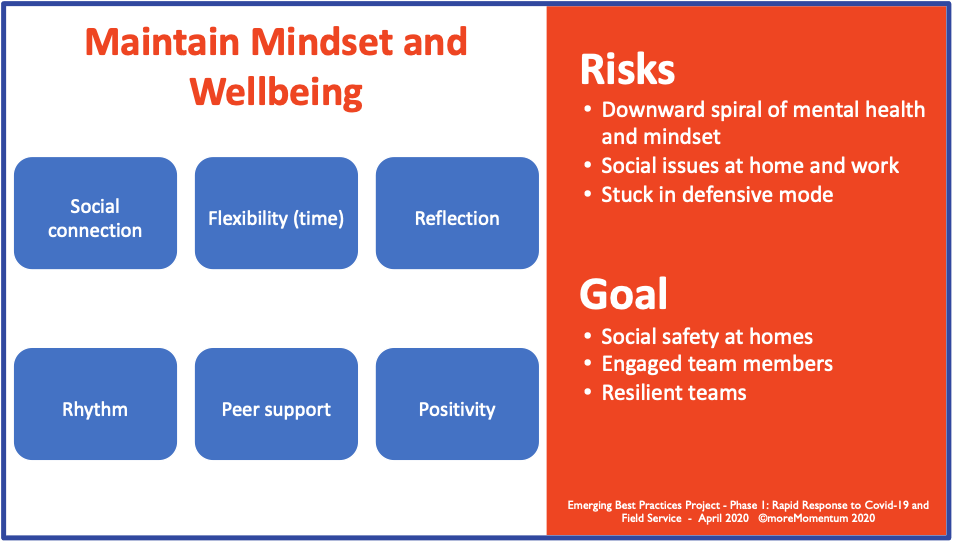
Safety of your team members is not only about avoiding infections. Particularly when a crisis is long and intense, has a big impact on people’s lives and causes a lot of uncertainties, the overall mindset and wellbeing of individuals and teams becomes important too.
To mitigate the immediate impact of a crisis like Covid-19, one of the major objectives and challenges is to keep people safe.
This is one of the 3 main sections from the "Ultimate Guide for Phase 1 - Rapid Response to Mitigate the Immediate Impact of Covid"
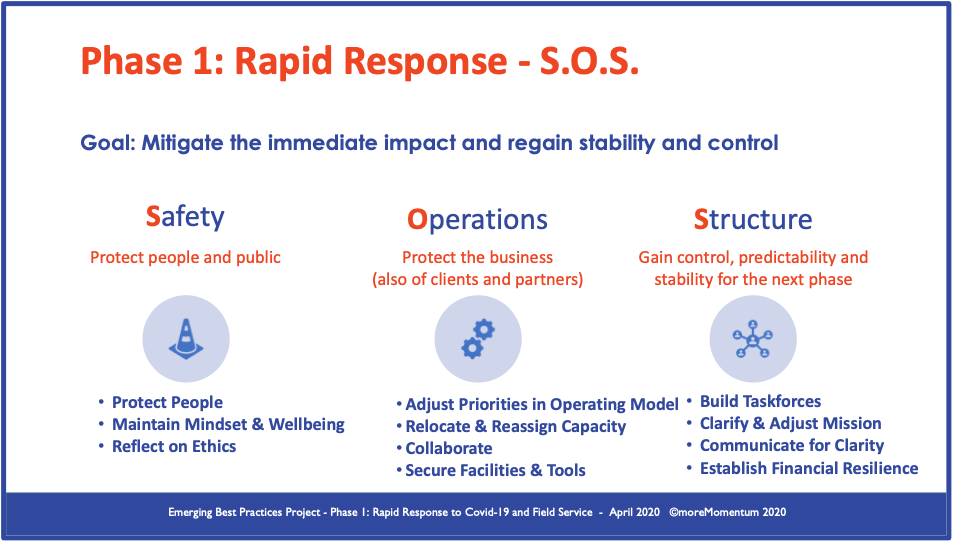
Regarding Maintaining Mindset and Wellbeing:
Risks to address
Goal
Main aspects
Especially team members with families at home or caring tasks for others in their private life have to adjust in many ways. They will suddenly be at home 24/7 with the entire family, taking care of kids and their education, while both spouses need time and space to work. They need to be able to combine many things, often in small homes.
This will require some flexibility on when work can be done as well as mutual understanding about sub-optimal conditions, for example during a conference call with children around.
We cannot ignore the fact that many team members will have more worries and concerns now. For example:
We should encourage and facilitate team members to take time to reflect on these concerns without letting it get too dominant on the mindset and sentiment. A good practice for everyone is to:
Most team members are not used to working from home and to cope with work and private life being so mingled. It is so easy to lose structure and a healthy lifestyle. This can have a negative effect on the mindset of individuals and families.
To avoid this, we can encourage team members and their families to:
There are plenty of apps to support this.
As most behavioural changes and challenges, they are not easy to start with and even more difficult to stick to. Peer dynamics and groups can make the difference.
We should encourage team members to frequently connect and cover all topics discussed in this chapter about Mindset and Wellbeing. Let them share their concerns, solutions, perspectives, practices and tips.
For individuals and teams to be resilient, it is crucial to have a shared concern, mission and vision. Having a clear view on the light at the end of the tunnel helps. Often repeat this mission, the objective and the envisioned state you are all working on. That will help everyone to stay motivated and keep having faith.
Download the full Guide for Phase 1 - Rapid Response
Subscribe for the our Impulse Letter
With regular updates about service news, trends and best practices.
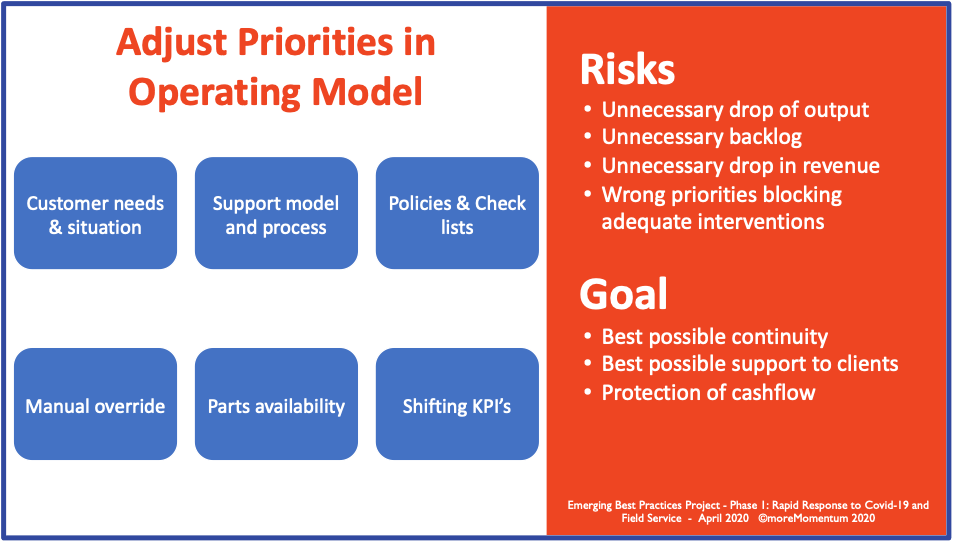
During a crisis many aspects of the normal way of working will not be adequate to continue business, or may simply not be possible to continue. Phase...
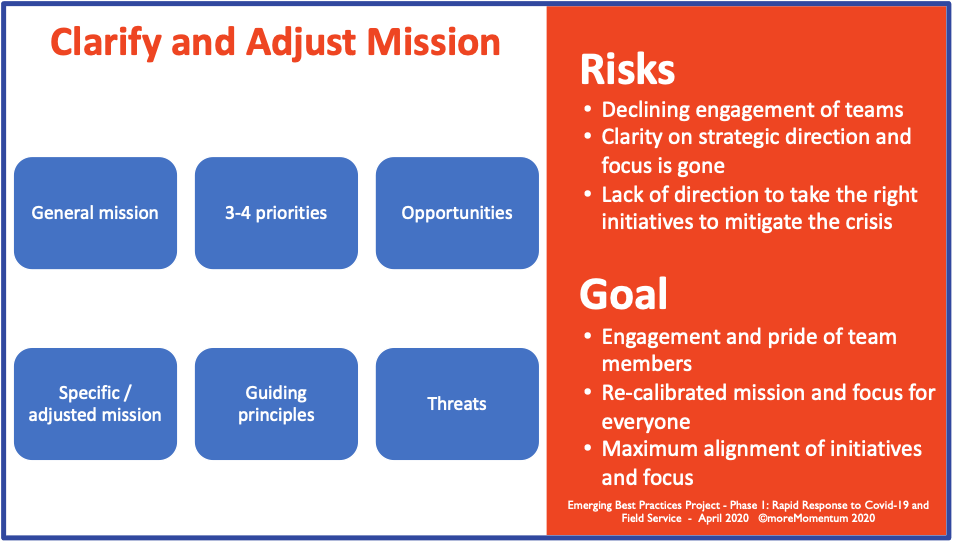
In times of crisis it is becomes even more critical to have a clear and compelling mission statement or strategic intent which provides a direction...
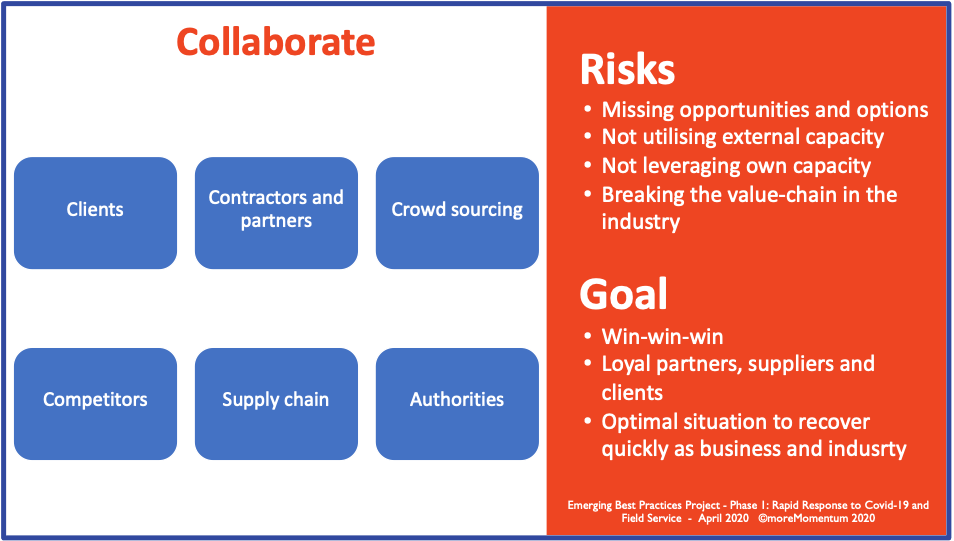
In times of crises, we are all in the same boat to survive and thrive. You may need to collaborate with parties you normally would not collaborate...